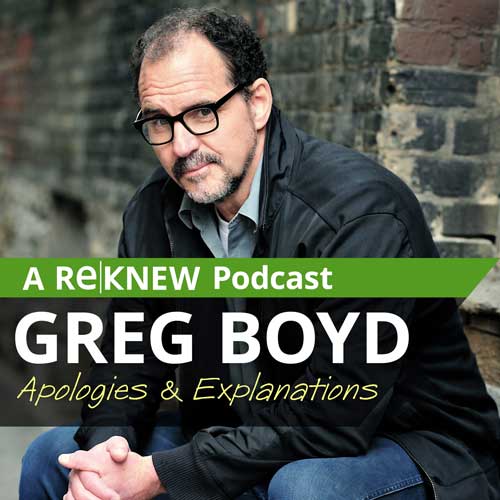We run our website the way we wished the whole internet worked: we provide high quality original content with no ads. We are funded solely by your direct support. Please consider supporting this project.
Is exhaustively settled foreknowledge essential to God’s identity
In this episode Greg discusses several passages in Isaiah that imply God’s foreknowledge is a primary differentiator between Isaiah’s God and all other gods.
Links:
Greg’s book: “God of the Possible“

Send Questions To:
Dan: @thatdankent
Email: askgregboyd@gmail.com
Twitter: @reKnewOrg
Greg’s new book: Inspired Imperfection
Dan’s new book: Confident Humility
Subscribe:
Category: ReKnew Podcast
Tags: Divine Foreknowledge, Foreknowledge, Open Future, Open Theism
Related Reading

What God Doesn’t Know (According to W.L.Craig)
Hello bloggers. Here’s Part II of my response to Bill Craig’s podcast critique of the open model of providence. As I see it, the central difference between Craig’s position (Molinism) and my own (open theism) boils down to our different assessments of futurity. As I noted in my previous blog, Craig believes that propositions asserting…

How do you respond to Numbers 23:19?
The Lord tells Balak through Balaam “God is not a human being, that he should lie, or a mortal, that he should change his mind.” This verse (as well as 1 Sam. 15:29, which quotes it) is often cited in refutation of the claim that God genuinely changes his mind. However, since Scripture explicitly states…

What is the significance of Jonah 1:2; 3:2, 4–10; 4:2?
God “changed his mind” (3:10) about the destruction he planned to carry out on Nineveh. If all events in history are eternally settled and known by God as such, his word to Jonah that he planned to destroy Nineveh in forty days was insincere as was his inspired testimony that he in fact changed his…

Prayer and the Open Future
Kurt Willems posted a blog today written by Derek Ouellette regarding why understanding that the future is partially open is the only thing that really makes sense of prayer. Derek addresses his thoughts to your younger self, the self that was more “Open. Teachable. Curious. Adventurous.” Let’s all be willing to respect and freely interact…

The Logical Hexagon Made Simple
by: Greg Boyd The Hexagaon in a Nutshell For those of you who don’t have the twenty to thirty minutes it will probably take to read this essay but who nevertheless would like to have some idea of what the Logical Hexagon is all about, here is my two sentence elevator speech: The Logical Hexagon…

How Could God Foreknow Peter’s Choice but not Abraham’s? (podcast)
Greg looks at the nature of God’s foreknowledge and testing. Episode 562 http://traffic.libsyn.com/askgregboyd/Episode_0562mp3.mp3



